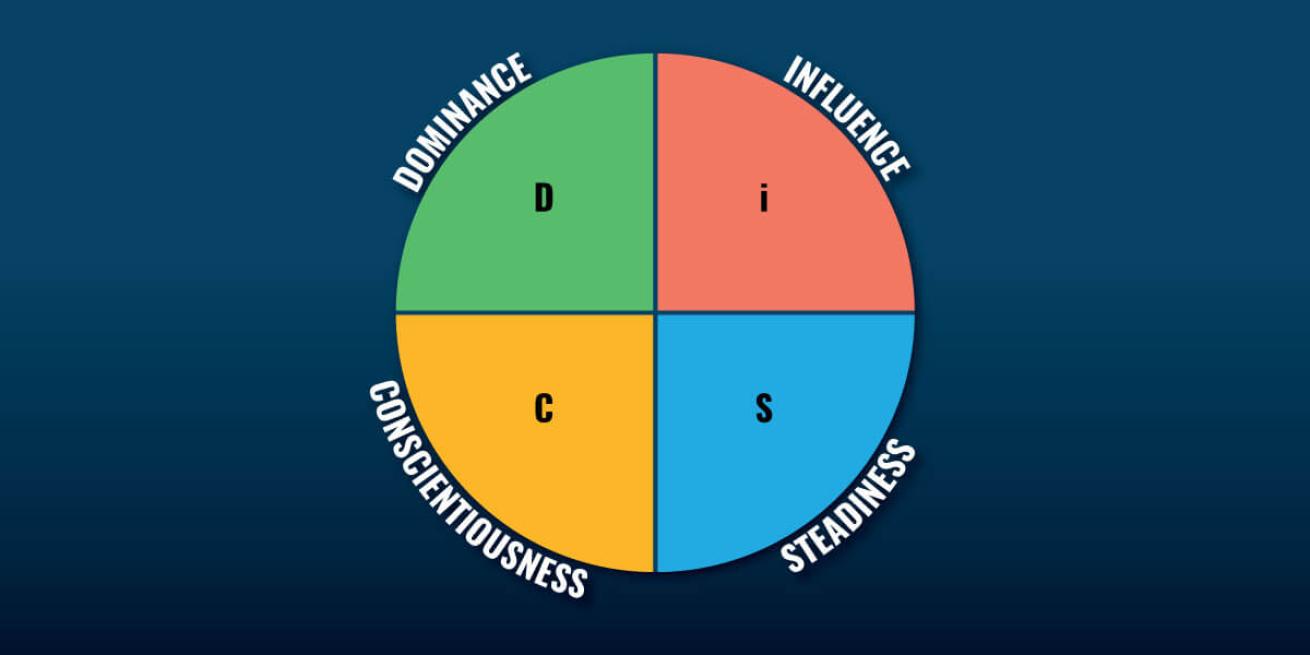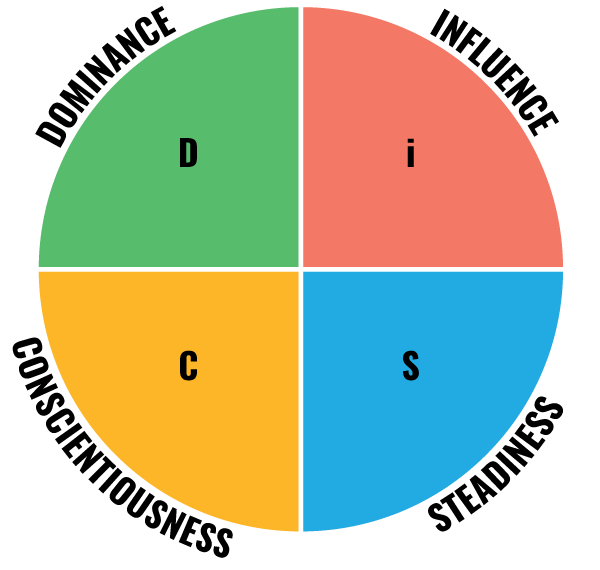
In the realm of personality assessment tools, DiSC stands as one of the most widely recognized and respected frameworks. It has an interesting history that dates back to the early 20th century. The theory was developed by psychologist William Moulton Marston, who is also known for creating the concept of the lie detector test and for his work on the fictional character Wonder Woman (if you can believe it).
In the 1920s, Marston began researching and studying human behavior and emotions. His goal was to develop a psychological framework that could be used to understand and predict how people would respond to different situations. This led him to explore the concept of emotions and their influence on behavior.
Marston proposed that people's behavior could be understood through four primary dimensions: Dominance (D), Influence (i), Steadiness (S), and Compliance (C). These dimensions represented different behavioral tendencies and patterns that could be observed in individuals. Marston's theory gained recognition and popularity over time, particularly in the field of industrial psychology. It provided a useful framework for understanding human behavior in the workplace and improving communication and productivity.
In the 1950s, Walter V. Clarke, a management consultant, built upon Marston's work and developed the first DiSC assessment tool. This tool was designed to measure an individual's behavioral preferences based on the four dimensions proposed by Marston. It provided a practical way to assess and categorize individuals into different personality profiles.
Since then, the DiSC theory has evolved and been refined by various researchers and practitioners. Today, DiSC assessments and workshops are widely used in various settings, including personal development, team building, leadership development, and communication training. At VCC.Academy, we’ve created a DiSC training program that is specifically designed for veterinarians and their teams. But let’s not get ahead of ourselves. Let’s take a look at the different personality profiles and what they bring to the table.
The Primary DiSC Personality Profiles
Dominance (D)
The Dominance profile is characterized by individuals who are direct, assertive, and results-oriented. They are driven by challenges and thrive on taking charge of situations. High “D” individuals tend to be decisive, self-confident, and enjoy taking risks. They are often viewed as assertive leaders who prioritize action and achieving tangible outcomes. However, they may sometimes come across as overly demanding or controlling.
Influence (i)
Individuals with the Influence profile possess a natural flair for building relationships, inspiring others, and fostering collaboration. They are enthusiastic, outgoing, and enjoy being the center of attention. High “i” individuals are skilled communicators, persuasive, and excel in social situations. They often possess great optimism and can motivate and energize those around them. However, they may occasionally struggle with attention to detail and focus on tasks.
Steadiness (S)
The Steadiness profile reflects individuals who are reliable, patient, and consistent in their approach. They value stability, harmony, and a calm working environment. High “S” individuals excel at listening, empathizing, and maintaining strong relationships. They are often seen as supportive team players who promote cooperation and consensus. However, they may struggle when it comes to making swift decisions or adapting to rapid changes.
Conscientiousness (C)
The Conscientiousness profile represents individuals who prioritize accuracy, precision, and attention to detail. They are systematic, organized, and value quality work. High “C” individuals excel at critical thinking, analyzing data, and developing innovative solutions. They often possess a strong sense of integrity and focus on maintaining high standards. However, they may sometimes struggle with flexibility and may be overly critical or cautious in their decision-making.
Understanding and Applying DiSC
The DiSC model provides a framework for understanding and appreciating the diverse perspectives and behaviors of your veterinary team. It helps them recognize their own preferences and tendencies while also fostering empathy and understanding for others. Knowing one's DiSC profile can also provide greater:
- Self-awareness: DiSC enables your veterinary team to gain insight into their own behavioral patterns, strengths, and areas for growth. By understanding their natural tendencies, your team members can leverage their strengths and develop strategies to overcome potential limitations.
- Communication: DiSC enhances communication skills by helping your veterinary team adapt their approach to different personality types. By recognizing the communication preferences of others, individuals can tailor their message, delivery style, and content to ensure effective and meaningful interactions with their team members and clients.
- Teamwork and Collaboration: DiSC aids in building cohesive veterinary teams by promoting understanding and appreciation of diverse personalities. By recognizing and valuing the unique contributions of each profile, your team can leverage their collective strengths and foster collaboration at your veterinary hospital.
- Leadership Development: DiSC is invaluable in leadership development programs. It enables leaders to understand their own leadership style and adapt their approach to meet the needs of their team members. Effective leaders use DiSC to build rapport, motivate their teams, and create a positive work environment. I’ve done this myself over the years as I’ve led my web marketing and development company, as well as at other organizations I’ve been a part of.
The DiSC personality profiles provide a powerful lens through which to view and understand human behavior. This brings us to why VCC.Academy finds the DiSC profiles to be so important. By identifying and understanding these four primary personality profiles, you can enhance your self-awareness, improve communication, and foster stronger relationships in your personal life and at your veterinary hospital. We’ve seen it in action and have years of experience that have shown us the value. Especially when working in team environments, such as veterinary hospitals or clinics.
When it comes to DiSC profiling and team communication training relating to those profiles, we can help. We provide workshops for veterinary teams to better understand their DiSC profiles and then dive into specific scenarios where they can practice communication in a forgiving and growth-oriented environment. Contact us to learn more!

Corey Smith, MBA
President
I have come to veterinary medicine from a truly non-medical and non-veterinary path. With early roots in 4-H and, as a youth, owning 4 horses, 2 ponies, 2 dogs, 1 cat, 1 sheep, a whole slew of rabbits, and even a giraffe (that’s a story for another day), I am decidedly not a veterinarian. I'm a businessman, marketer, and talented coach. Whether I'm coaching in business, marketing, or helping leaders understand how their personality affects their interpersonal and client relationships, my goal is to help leaders be the best they can be.

